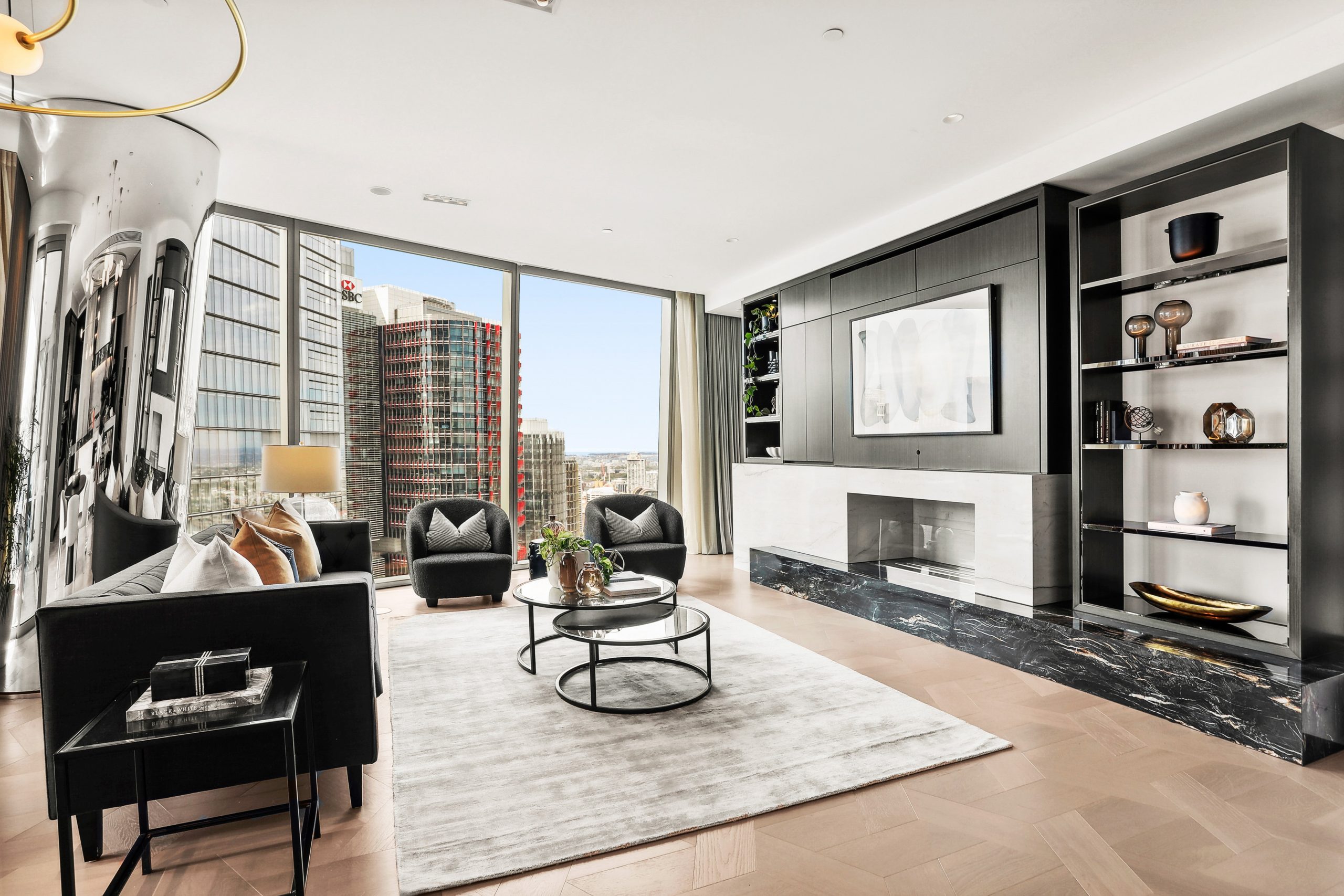Why You Should—Or Shouldn’t—Buy A Home Security Camera
How to protect your privacy and that of your neighbours by enabling encryption and other settings.
When a thief emptied my mailbox a few years ago, I scoured the neighbourhood social network Nextdoor to see if it was part of a trend. My feed was full of video-doorbell footage, mostly of package pirates and wild parrots. I realised then just how many devices were likely recording my daily walk up and down the street.
Home surveillance cameras—from Ring, Nest, Arlo and others—are the eyes and ears of many neighbourhoods. Around 14% of U.S. households with broadband have installed an internet-connected camera, according to research firm Parks Associates. Their popularity has drawn the attention of law enforcement (not to mention hackers), which raises new issues for people looking to set one up.
They’re in demand in part because professional systems can cost hundreds of dollars to install, along with steep monthly fees. You can buy a smart camera for as low as US$50, pay around US$4 a month for cloud storage and get activity-based notifications on your phone.
Cameras are convenient for knowing when packages are delivered or when the dog walker drops off the pooch while you’re not around. But they capture sensitive data that’s sent from your home to company servers—and you should know how to protect your footage from being seen or shared without your permission.
Amazon.com Inc.-owned Ring gave surveillance footage to law enforcement 11 times this year without a warrant or customers’ consent. The company said the requests met its exception for emergencies. In the past, hackers with stolen credentials broke into Ring camera web portals and scared the living heck out of unsuspecting families with the devices’ two-way talk capabilities.
“Ring holds a high bar for itself and deeply scrutinizes each emergency request,” a spokeswoman said. The company might provide information to law enforcement when there is danger of death or serious physical injury, such as a kidnapping or attempted murder, she said. “These emergency requests are reviewed by trained professionals who disclose information only when that legal standard is met,” she added.
If you’re uncomfortable with a company making that determination, there are settings you can enable to prevent sharing, as well as platforms that make privacy the default. Here’s what you should think about when installing a smart surveillance camera.
End-to-End Encryption
When Ring, Google’s Nest or Arlo send footage from the camera to the company’s servers, that data is automatically encrypted. Translation: It’s protected if a hacker gains access to those servers.
However, the companies themselves can decrypt that data and—if legally or morally compelled—share it. A spokeswoman for Alphabet Inc.’s Google said that to date, the company has never given camera data to authorities without customer consent, but it reserves the right to do so if it considers a situation an emergency.
There is a method of protection, called end-to-end encryption, that would hide videos from both hackers and the companies. “It means that only your device, for example, your phone, can see the video that is recorded,” said David Choffnes, executive director of the Cybersecurity and Privacy Institute at Northeastern University.
End-to-end encryption, while recommended by Prof. Choffnes and others, isn’t always an option. Neither Google Nest nor Arlo offers the ability to fully encrypt camera videos. Ring has an opt-in setting for many products, but not its battery-powered models. A spokeswoman confirmed that Ring wouldn’t be able to decrypt such videos for law enforcement.
There are, however, trade-offs for turning on Ring’s end-to-end encryption. You can only view video on authorized mobile devices, not through your web browser. Some features are disabled, such as image previews within notifications and the ability to watch streams on other Amazon devices.
On Apple Inc.’s HomeKit Secure Video platform, end-to-end encryption is the default. The service requires an iCloud+ plan of 50GB or higher, though the videos won’t eat into your allotted storage. You need a home “hub” in the form of a HomePod, iPad or Apple TV. And, of course, everyone who wants access to the camera streams must use an Apple device.
There is a limited selection of HomeKit devices. I like Eve’s indoor cam for its slim profile, as well as Logitech International SA’s Circle View doorbell and camera for face recognition and outdoor use. Because all the footage flows through the Home app, it’s fine to mix and match brands.
Just remember that end-to-end encryption is only as secure as your devices. “If someone else can access your device or your passphrase—for example, a family member, or even law enforcement—they can see the videos,” said Prof. Choffnes.
Outdoor vs. Indoor
When you set up a camera outdoors, often mounted at the doorbell, see if it’s pointed at any area that would be considered a private space such as, for example, a neighbour’s bedroom. Generally, public roads and your own front porch are OK. Set up zones that only trigger recordings when someone enters that space. (Ring, Google Nest, Arlo and HomeKit devices have this functionality.) Ring users can also set up privacy zones, which blackout areas from your camera’s field of view, so they aren’t recorded in videos.
Indoor cameras need slightly different considerations. Many people avoid putting them in bedrooms, for instance. These devices will be watching your personal spaces, so choose a brand with strong security and end-to-end encryption. Use activity zones and automation—such as only recording when you’re not at home or on a schedule—to limit the amount of footage collected.
Make sure you have a long, unique password and two-factor authentication protecting the camera account, as well as a strong passcode on your phone. With your login, hackers could watch and listen in on live video feeds of your home.
Let everyone in your household, including guests, babysitters and housekeepers, know there’s a camera around. (And, seriously, don’t be creepy about where you put it.)
You might already have a security device in your home if you have an Amazon Echo product. Microphones on Echo speakers are trained to recognize the sound of broken glass and smoke alarms. Echo Show devices with cameras can be live-streamed remotely.
To Post or Not to Post
Many brands let you clip recordings, which can then be posted to social media. Ring even has its own network, called Neighbours.
Even if you feel tempted to shame a person you suspect of wrongdoing, take a breath before sharing. It’s legal to record someone in public, where there is no expectation of privacy, according to law nonprofit New Media Rights. But the video could include landmarks that reveal where you live. And you should avoid situations leading to wrongful accusations or mistaken identity.
Ring has specific guidelines on what’s allowed on its Neighbors app. Sharing a video of a hit-and-run is OK. Posting footage of someone walking through an unfenced front yard isn’t.
Reprinted by permission of The Wall Street Journal, Copyright 2021 Dow Jones & Company. Inc. All Rights Reserved Worldwide. Original date of publication: July 31, 2022.
 Copyright 2020, Dow Jones & Company, Inc. All Rights Reserved Worldwide. LEARN MORE
Copyright 2020, Dow Jones & Company, Inc. All Rights Reserved Worldwide. LEARN MORE
This stylish family home combines a classic palette and finishes with a flexible floorplan
Just 55 minutes from Sydney, make this your creative getaway located in the majestic Hawkesbury region.
As Paris makes its final preparations for the Olympic games, its residents are busy with their own—packing their suitcases, confirming their reservations, and getting out of town.
Worried about the hordes of crowds and overall chaos the Olympics could bring, Parisians are fleeing the city in droves and inundating resort cities around the country. Hotels and holiday rentals in some of France’s most popular vacation destinations—from the French Riviera in the south to the beaches of Normandy in the north—say they are expecting massive crowds this year in advance of the Olympics. The games will run from July 26-Aug. 1.
“It’s already a major holiday season for us, and beyond that, we have the Olympics,” says Stéphane Personeni, general manager of the Lily of the Valley hotel in Saint Tropez. “People began booking early this year.”
Personeni’s hotel typically has no issues filling its rooms each summer—by May of each year, the luxury hotel typically finds itself completely booked out for the months of July and August. But this year, the 53-room hotel began filling up for summer reservations in February.
“We told our regular guests that everything—hotels, apartments, villas—are going to be hard to find this summer,” Personeni says. His neighbours around Saint Tropez say they’re similarly booked up.
As of March, the online marketplace Gens de Confiance (“Trusted People”), saw a 50% increase in reservations from Parisians seeking vacation rentals outside the capital during the Olympics.
Already, August is a popular vacation time for the French. With a minimum of five weeks of vacation mandated by law, many decide to take the entire month off, renting out villas in beachside destinations for longer periods.
But beyond the typical August travel, the Olympics are having a real impact, says Bertille Marchal, a spokesperson for Gens de Confiance.
“We’ve seen nearly three times more reservations for the dates of the Olympics than the following two weeks,” Marchal says. “The increase is definitely linked to the Olympic Games.”

Getty Images
According to the site, the most sought-out vacation destinations are Morbihan and Loire-Atlantique, a seaside region in the northwest; le Var, a coastal area within the southeast of France along the Côte d’Azur; and the island of Corsica in the Mediterranean.
Meanwhile, the Olympics haven’t necessarily been a boon to foreign tourism in the country. Many tourists who might have otherwise come to France are avoiding it this year in favour of other European capitals. In Paris, demand for stays at high-end hotels has collapsed, with bookings down 50% in July compared to last year, according to UMIH Prestige, which represents hotels charging at least €800 ($865) a night for rooms.
Earlier this year, high-end restaurants and concierges said the Olympics might even be an opportunity to score a hard-get-seat at the city’s fine dining.
In the Occitanie region in southwest France, the overall number of reservations this summer hasn’t changed much from last year, says Vincent Gare, president of the regional tourism committee there.
“But looking further at the numbers, we do see an increase in the clientele coming from the Paris region,” Gare told Le Figaro, noting that the increase in reservations has fallen directly on the dates of the Olympic games.
Michel Barré, a retiree living in Paris’s Le Marais neighbourhood, is one of those opting for the beach rather than the opening ceremony. In January, he booked a stay in Normandy for two weeks.
“Even though it’s a major European capital, Paris is still a small city—it’s a massive effort to host all of these events,” Barré says. “The Olympics are going to be a mess.”
More than anything, he just wants some calm after an event-filled summer in Paris, which just before the Olympics experienced the drama of a snap election called by Macron.
“It’s been a hectic summer here,” he says.

AFP via Getty Images
Parisians—Barré included—feel that the city, by over-catering to its tourists, is driving out many residents.
Parts of the Seine—usually one of the most popular summertime hangout spots —have been closed off for weeks as the city installs bleachers and Olympics signage. In certain neighbourhoods, residents will need to scan a QR code with police to access their own apartments. And from the Olympics to Sept. 8, Paris is nearly doubling the price of transit tickets from €2.15 to €4 per ride.
The city’s clear willingness to capitalise on its tourists has motivated some residents to do the same. In March, the number of active Airbnb listings in Paris reached an all-time high as hosts rushed to list their apartments. Listings grew 40% from the same time last year, according to the company.
With their regular clients taking off, Parisian restaurants and merchants are complaining that business is down.
“Are there any Parisians left in Paris?” Alaine Fontaine, president of the restaurant industry association, told the radio station Franceinfo on Sunday. “For the last three weeks, there haven’t been any here.”
Still, for all the talk of those leaving, there are plenty who have decided to stick around.
Jay Swanson, an American expat and YouTuber, can’t imagine leaving during the Olympics—he secured his tickets to see ping pong and volleyball last year. He’s also less concerned about the crowds and road closures than others, having just put together a series of videos explaining how to navigate Paris during the games.
“It’s been 100 years since the Games came to Paris; when else will we get a chance to host the world like this?” Swanson says. “So many Parisians are leaving and tourism is down, so not only will it be quiet but the only people left will be here for a party.”
This stylish family home combines a classic palette and finishes with a flexible floorplan
Just 55 minutes from Sydney, make this your creative getaway located in the majestic Hawkesbury region.






















